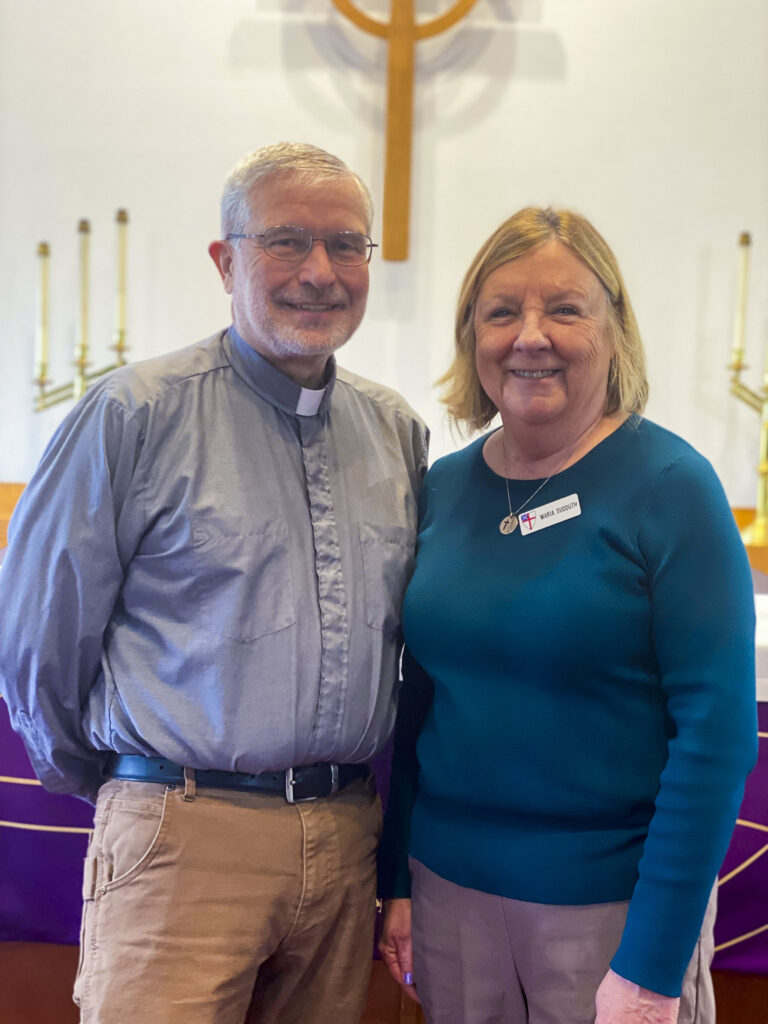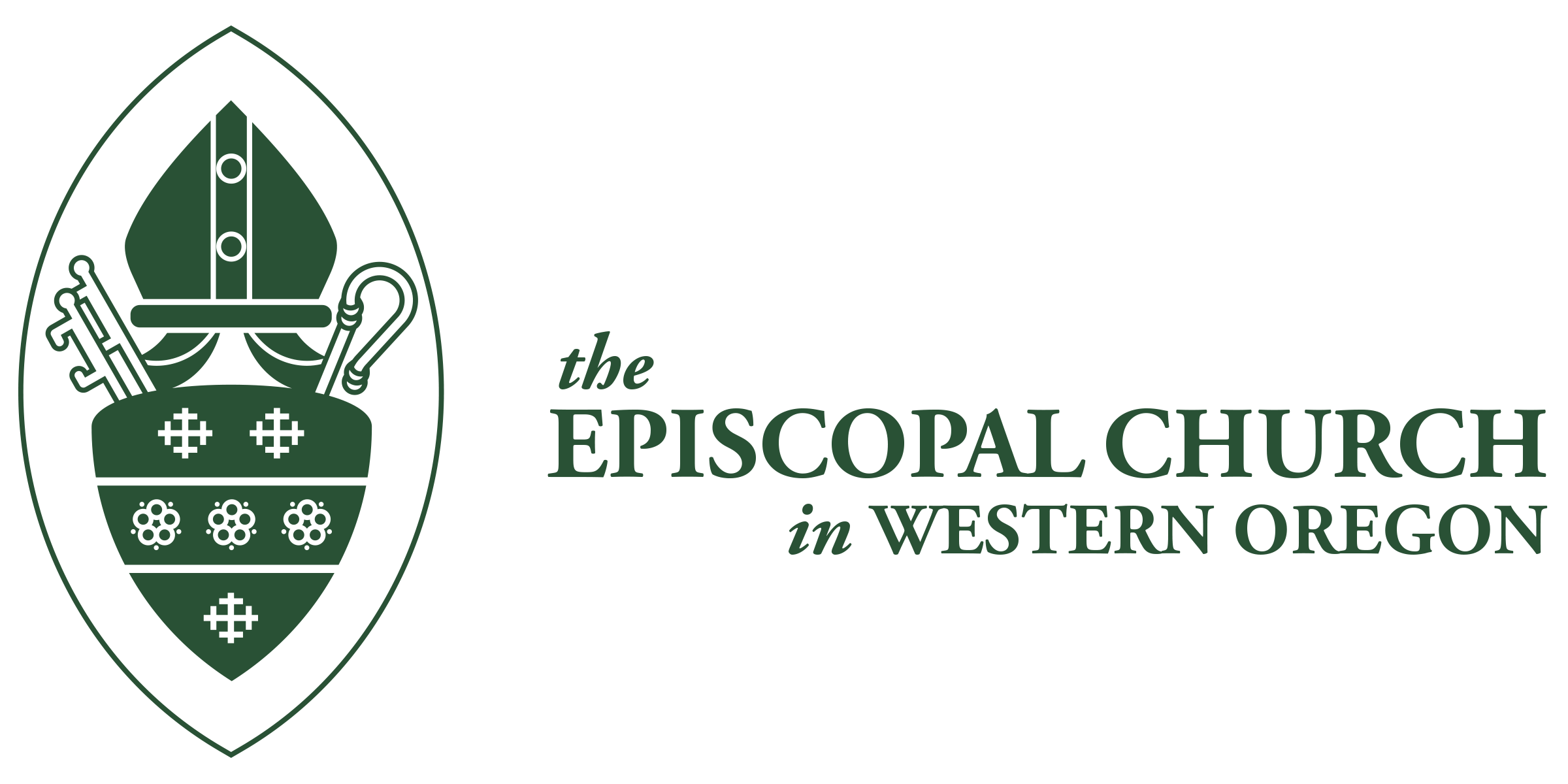The Rev. Kurt Neilson serves as the supervisor for the Clinical Pastoral Education (CPE) program in the Episcopal Church in Western Oregon, a partnership with Legacy Health Systems. CPE is a hands-on, supervised training program that helps clergy, seminarians, and lay leaders develop pastoral care skills in clinical settings. Father Kurt is certified through the College of Pastoral Supervision and Psychotherapy (www.cpsp.org), which also accredits the program.
Chaplaincy is no longer confined to hospitals. Across our diocese and beyond, the Holy Spirit is leading chaplains into communities, meeting people where they are—whether in churches, outreach ministries, or on the streets. Parish chaplains walk alongside congregations, while community chaplains minister to those facing life’s most difficult challenges. The Episcopal Church in Western Oregon’s Clinical Pastoral Education/Training Program first debuted in 2017, inspired by the conviction that both CPE and chaplaincy need to move out beyond hospital walls to engage people “on the margins” and train those who are offering care.
At Saint Timothy’s in Brookings, a powerful example of this ministry is unfolding. Maria Sudduth, a recent Clinical Pastoral Education (CPE) trainee, serves as a parish and community chaplain. Under the mentorship of the Rev. Bernie Lindley, vicar of St. Timothy’s, she is part of Saint Timothy’s Outreach Ministry Team, offering spiritual and emotional support to those in need. Maria is the third member of St. Timothy’s trained in our CPE program to date.
Walking Alongside the Most Vulnerable
Maria’s work is deeply personal and transformative—not just for those she serves but for herself as well. She recalls meeting a 72-year-old woman who had spent years living on the streets. The woman resisted moving into an assisted living facility, believing she didn’t deserve stability or comfort. “There was deep spiritual work to be done,” Father Bernie reflects. “She needed someone to help her see her own worth.”
St. Timothy’s team was able to secure the woman stable and safe housing. Through patient listening and compassionate presence, Maria helped this woman take the courageous step toward a new life. “I first met her when she was in an abusive relationship,” Maria shares. “She was couch-surfing, sleeping in doorways. For a long time, she couldn’t accept help. But over time, she came to see that she was worthy of care.”
This kind of chaplaincy is not about offering quick solutions—it’s about being present. “It’s active listening, not distracted listening,” Maria explains. “I used to think my role was to fix things, to find resources. But I’ve learned that what people need most is to be heard, to have their pain acknowledged, and to discover their own path forward.”
A Ministry of Accompaniment
Saint Timothy’s has built an entire outreach network rooted in this philosophy. Their team—now including five paid staff and numerous volunteers—has stepped in where other social services fall short. During the pandemic, they provided over 4,000 COVID-19 vaccinations and 7,000 rapid tests. They supported those in quarantine by covering rent and delivering groceries. But beyond these tangible acts of service, the deeper mission is walking alongside those in crisis, and that’s where Maria’s ministry is focused.
“A chaplain’s role is different from that of a caseworker,” Father Bernie explains. “Many people we serve have experienced trauma, rejection, or deep emotional wounds. Maria’s training allows her to be a presence of Christ for them, creating a space where they can process their pain and begin healing. It is deep spiritual work.”
Bringing Chaplaincy into More Communities
 The success of this ministry raises an important question: could more parishes embrace chaplaincy?
The success of this ministry raises an important question: could more parishes embrace chaplaincy?
“I believe what we’re doing here can be replicated,” Father Bernie says. “In some churches, a parish chaplain might focus on congregational care—walking with members through grief, illness, or personal crises. Others, like us, might extend their chaplaincy into the wider community, meeting the needs of the most vulnerable.”
Maria emphasizes that for this work to flourish, trust and mentorship are essential. “I’m fortunate to have a strong, honest relationship with Father Bernie. That support has helped me grow into this calling. If churches want to develop chaplaincy programs, they need to invest in both training and relationships of trust.”
A Calling as Old as the Church
Chaplaincy is not a new concept—it is as ancient as pastoral ministry itself. At its heart, chaplaincy is about walking with others through life’s struggles, “holding a space” of love and acceptance. Today, as more people face isolation, rejection, and systemic barriers, the need for chaplains in both parishes and communities has never been greater.
Our diocesan CPE program provides training that is flexible, adaptive, and grounded in real-world ministry. If you are discerning a call to chaplaincy, we invite you to explore this transformative path.
For more information, contact the Rev. Kurt Neilson at kbneilson@lhs.org or visit https://ecwo.org/clinical-pastoral-education/.
